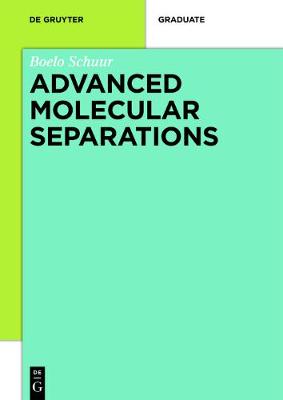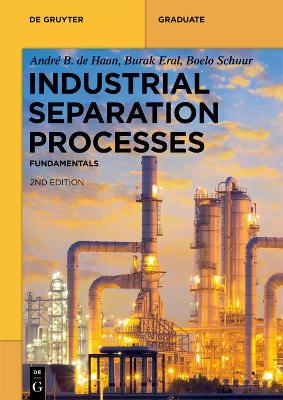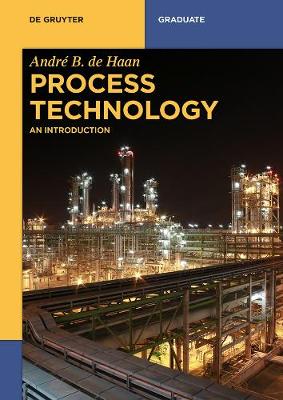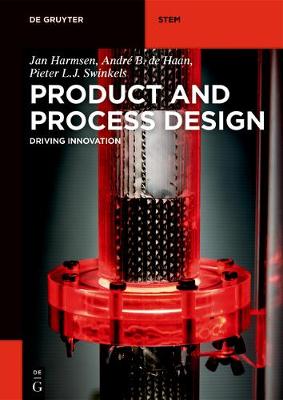De Gruyter Textbook
4 total works
Mastering Molecular Separations is a textbook on separation technology and covers molecular separations of fluid streams. Traditional fluid separations like distillation, absorption, stripping and liquid extraction are covered, but also other industrial separations that include solid separating agents such as adsorptions and membranes. The title hints to the graduate level of the text. As such, the textbook could be used in combination with the undergraduate book on Industrial Separations by De Haan and Bosch. After the introductory chapter on separation processes and brief coverage of shortcut methods for estimation of equipment sizes and energy consumption, the first chapters treat molecular properties and thermodynamic models that are often used in simulation software. These chapters, aiming at understanding of solvent/sorbent choices and when and why certain models best apply precede technology specific chapters that treat the concept and design approaches for that technology, allowing the students to design each of these unit operations on the conceptual level and compare the technologies on equipment size and energy consumption.
Industrial Separation Processes
by Andre B. de Haan, H. Burak Eral, and Boelo Schuur
Published 29 May 2013
Separation processes on an industrial scale account for well over half of the capital and operating costs in the chemical industry. Knowledge of these processes is key for every student of chemical or process engineering. This book is ideally suited to university teaching, thanks to its wealth of exercises and solutions. The second edition boasts an even greater number of applied examples and case studies as well as references for further reading.
Process Technology provides a general overview about chemical and biochemical process technology. It focuses on the structure and development of production processes, main technological operations and the important aspects of process economics. The theoretical foundations in each chapter are supplemented by case studies and examples in a clear and instructive manner to illustrate the practical aspects.
The author highlights operating principles, reasons for application and available industrial equipment of technological operations. Aim is to facilitate those without a process technology background in multi-disciplinary cooperation with (bio-) chemical engineers by providing an overview of this exciting field.
The textbook is organized into seven distinct parts:
Structure of the chemical industry and (bio-) chemical processes
(Bio-) Chemical reaction engineering
Molecular separations (distillation, extraction, absorption, adsorption)
Mechanical separations (filtration, sedimentation, membranes)
Particle and final product manufacturing
Development, scale-up, design and safety of processes
Major industrial process descriptions
The author highlights operating principles, reasons for application and available industrial equipment of technological operations. Aim is to facilitate those without a process technology background in multi-disciplinary cooperation with (bio-) chemical engineers by providing an overview of this exciting field.
The textbook is organized into seven distinct parts:
Structure of the chemical industry and (bio-) chemical processes
(Bio-) Chemical reaction engineering
Molecular separations (distillation, extraction, absorption, adsorption)
Mechanical separations (filtration, sedimentation, membranes)
Particle and final product manufacturing
Development, scale-up, design and safety of processes
Major industrial process descriptions
Product and Process Design
by Jan Harmsen, Andre B. de Haan, and Pieter L. J. Swinkels
Published 22 May 2018
Product and Process Design: Driving Innovation is a comprehensive textbook for students and industrial professionals. It treats the combined design of innovative products and their innovative manufacturing processes, providing specific methods for BSc, MSc, PDEng and PhD courses. Students, industrial innovators and managers are guided through all design steps in all innovation stages (discovery, concept, feasibility, development, detailed engineering, and implementation) to successfully obtain novel products and their novel processes.
The authors' decades of innovation experience in industry, as well as in teaching BSc, MSc, and post-academic product and process design courses, thereby including the latest design publications, culminate in this book.
The authors' decades of innovation experience in industry, as well as in teaching BSc, MSc, and post-academic product and process design courses, thereby including the latest design publications, culminate in this book.



